Putin & COVID: What changed after February 24?
Did the special military operation in Ukraine "end" the "pandemic" in Russia?
Part I of this series provided a summary of Putin’s involvement in Sputnik V’s development and deployment.
Pat II detailed the Russian president’s views on compulsory vaccination.
Part III outlined Putin’s positions on “international cooperation” on COVID.
Part IV examined to what extent Putin has been involved in formulating and guiding COVID measures in Russia.
This article will explore how Russia’s COVID response has changed since February 24, and whether there is evidence that the special military operation in Ukraine has revealed Putin’s “true” feelings about the “health crisis.”
February 2022: Setting the stage
Before we dive into the latest Virus-related developments in Russia, it’s important to revisit what was happening inside the country—and around the world—in the days leading up to February 24.
“Under pressure from a pandemic-weary public, politicians across the region are deeming many public-health measures increasingly unnecessary. Italy, Switzerland and Finland are set to join Denmark, Ireland and France in easing the bulk of restrictions on public life. Norway also relaxed most rules,” Bloomberg reported on February 2.
This was all happening against the wishes of WHO Director-General Tedros Adhanom Ghebreyesus, who warned it was “premature” for any country to declare victory over a virus that “continues to evolve before our very eyes.”
But for countries around the world, alleviating the political and socioeconomic consequences of two years of “public health” measures was now of critical importance.
Even the most COVID-crazy countries, lorded over by fanatic Virus juntas, began to ease restrictions.
On February 3, Spain announced the end of its outdoor mask regime.
The Czechs suspended their digital health pass system on February 9. (EU states weren’t alone in rolling back “health passports”; Georgia scrapped its Green Pass system on February 1.)
Italy abandoned its outdoor mask decree on February 11. Even Austria—which had just adopted a law that imposed fines on unvaccinated adults—revealed on February 16 that it would drop most coronavirus restrictions starting in early March. On March 9, the Alpine nation suspended its highly controversial mandatory vaccination law.
On February 17, giga-vaxxed Israel discontinued its infamous Green Pass program.
Four days later, on February 21, Prime Minister Boris Johnson said it was time to start “living with COVID” and announced England would drop all Virus restrictions.
“Today is not the day we can declare victory over COVID, because this virus is not going away. But it is the day when all the efforts of the last two years finally enabled us to protect ourselves while restoring our liberties in full,” Johnson said.
What was happening inside Russia?
Even after the State Duma shelved national QR code legislation on January 17, the Russian government stubbornly clung to COVID hysteria.
With the backing of the federal government, Russia’s tone-deaf regions began suspending or limiting routine medical care in late January—purportedly because the healthcare system couldn’t cope with the “Omicron surge”.
The anger among Russians was palpable.
On February 2, a fed-up resident (residents?) of Kursk hung an effigy of their face-diapered governor.
Inspired by their fellow truckers in Canada, the Association of Carriers of Russia (OPR) announced on February 4 that it was organizing its own “Freedom Convoy”.
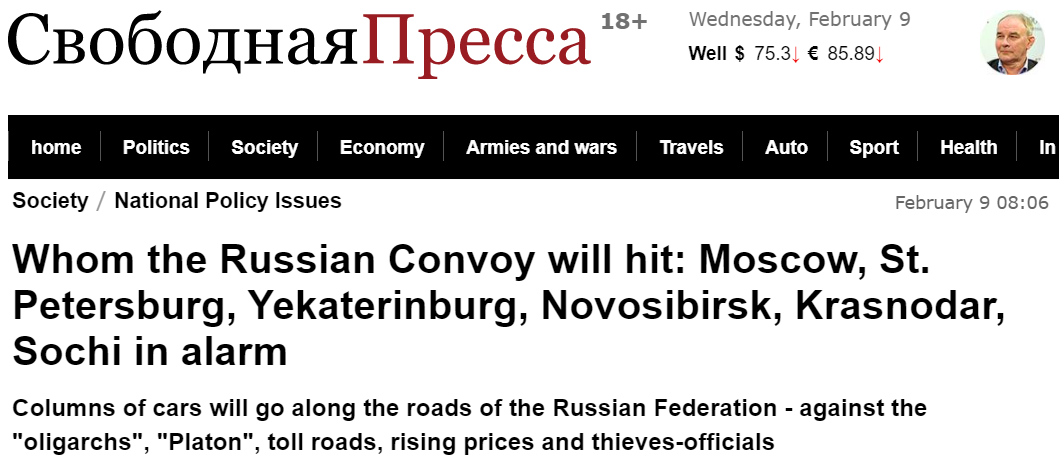
Facing the same backlash against COVID restrictions witnessed across the globe, Russia’s federal government decided to “revise” its public health recommendations.
At a meeting on February 22, Anna Popova, head of the Federal Service for Supervision of Consumer Rights Protection and Human Welfare (Rospotrebnadzor), said restrictions could be loosened in the coming weeks.
However, she stressed this decision was based on the current epidemiological situation and was subject to change:
Today, taking into account the dynamics and forecasts made by our scientists and experts, we can talk about softening a number of requirements and guidelines when a period of, so to speak, epidemiological remission in the Russian Federation begins.
What I'm talking about? We are preparing materials for such changes regarding museums, theaters, fitness centers and catering.
Once again I want to make a reservation: [these recommendations are] only for the situation that is developing today with the Omicron variant.
In the following weeks, regions abandoned their deeply unpopular (and oftentimes ignored) digital health pass systems. But it wasn’t until mid-April that Russia was QR code-free. (Some regions, like Tatarstan, actually gave up on QR codes several days before the start of the military operation.)
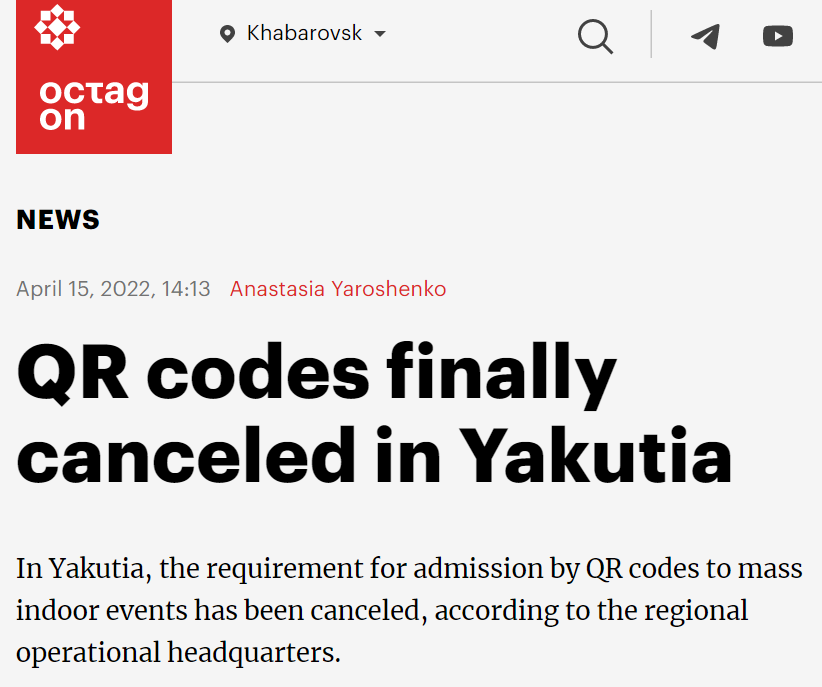
Far more damaging and consequential was the puzzling foot-dragging when it came to restoring routine medical care in the country. On April 7, Prime Minister Mikhail Mishustin instructed regions to reverse their “optimization” of the healthcare system:
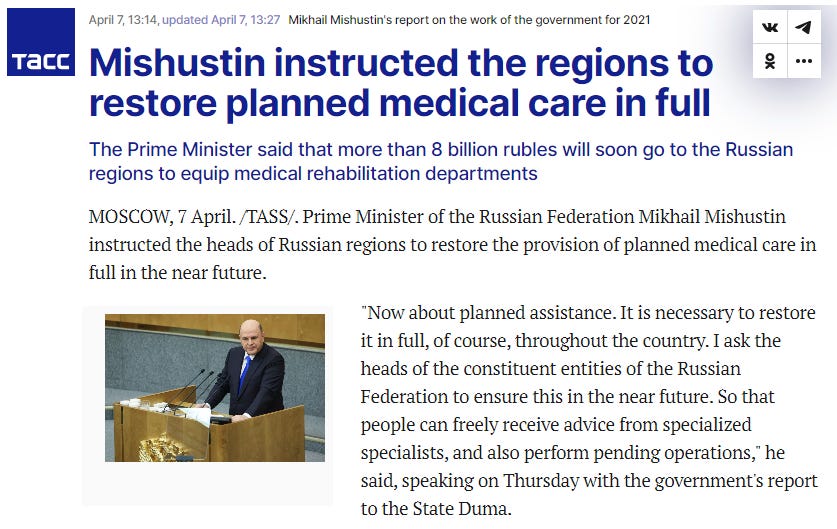
When you review Russia’s COVID “readjustments” after February 24, what you’ll find is that Russia was far less eager to part ways with Virus restrictions than other countries.
In many cases, it took months to formally cancel mask decrees and mandatory vaccination. (May 31: Samara, Tyumen, Perm, Novosibirsk; June 1: Chelyabinsk, Karelia, Rostov, Yakutia, Crimea; June 2: Primorye, Kostroma, Bryansk, Orenberg, Sverdlovsk; June 3: Mordovia, Mari El, Transbaikalia, Volgograd; June 4: Saratov; and so on.)
As this blog has pointed out again and again, Russians have been bypassing, ignoring and openly resisting COVID restrictions since the earliest days of the “pandemic”.
So why were the regions so slow with “officially” dumping Virus rules? As we established in Part IV of this series, regions coordinate all COVID measures with the federal government. What was preventing Russia’s regions from dropping all mask and vaccination rules immediately, on February 24? Or even sooner?
The end of Virus Tyranny in Russia?
There is no question that after February 24, coronavirus took a backseat to the conflict in Ukraine. Almost overnight, Russian media seemingly forgot about the Dreaded Virus.
But in the eyes of federal and regional authorities, the Virus remained a lingering threat. On May 1 we provided a detailed overview of the bizarre and arbitrary ways in which the “pandemic” was being kept alive in Russia. For the sake of brevity, we will focus on more recent COVID developments.

By mid-June, the COVID “threat” began to creep back into headlines on a daily basis.
Russia’s health minister, Mikhail Murashko, revealed on June 16 that the federal government was consulting with the State Duma about making COVID shots mandatory in the national vaccination calendar.
If successful, this plan would make “immunization” against coronavirus compulsory for millions of Russians who work in government and various sectors, including education and healthcare. The result would be similar to the mandatory injection decrees adopted by the regions—but with one important difference: the regional vax rules were triggered by an alleged epidemiological threat.
In other words: COVID vaccination would simply become another shot you would need in order to work in certain sectors. Even if COVID “outbreaks” ended forever, the injection would still be required.
There is another aspect to Murashko’s announcement that perfectly illustrates the “long game” of global Virus Tyranny.
On June 16, 2021, Kremlin spokesman Dmitry Peskov insisted there was “no talk” of making vaccination compulsory at the national level.
Exactly one year later, on June 16, 2022, Russia’s health minister announced he wanted to include COVID shots in the national vaccination calendar.
The strategy of two steps forward, one step back—often cited when talking about Virus Tyranny in the West—absolutely applies to Russia as well.
We’re seeing something very similar happening with digital health passes.
“It doesn’t make sense to completely abandon QR codes,” Russia’s Deputy Health Minister Pavel Pugachev said in an interview on July 11, adding that digital health certificates could become “the key to information about all the vaccinations of each individual person throughout his life.”
Pugachev explained that “with the help of such a system, it will be possible to assess collective immunity for a particular disease with an accuracy up to a specific region, locality, and predict the risks of the spread of infectious diseases.”
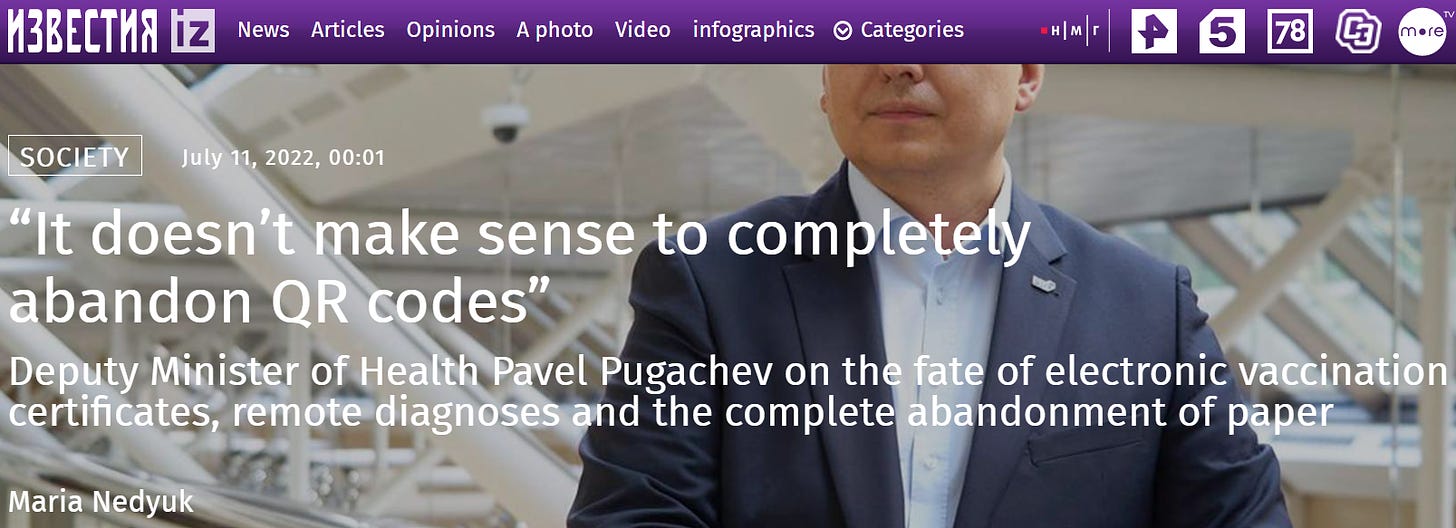
Could such a system be used to impose local or regional lockdowns based on vaccine uptake? Or shut down businesses in areas where vaccination rates are deemed inadequate? Or force people who came in contact with an unvaccinated individual to self-isolate? What else could such a system be used for?
Meanwhile, regional mask rules and vaccination “recommendations” and decrees are returning to Russia. We wrote about some of these new dictates on July 23, but for a day-to-day chronology of the latest COVID restrictions, visit our Telegram channel.
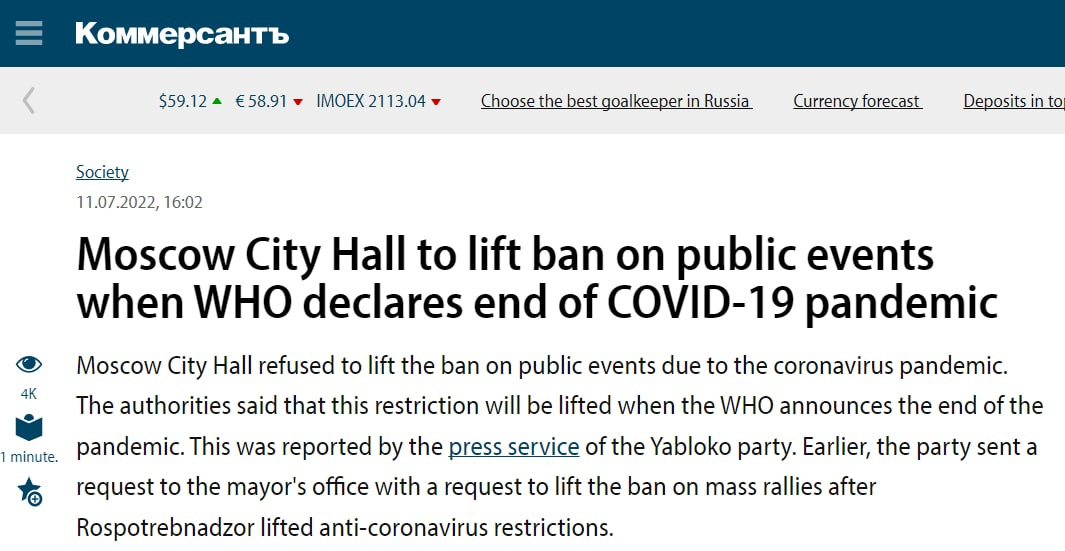
While there has been no talk of imposing restrictions at the national level, the federal government has been leading by example.
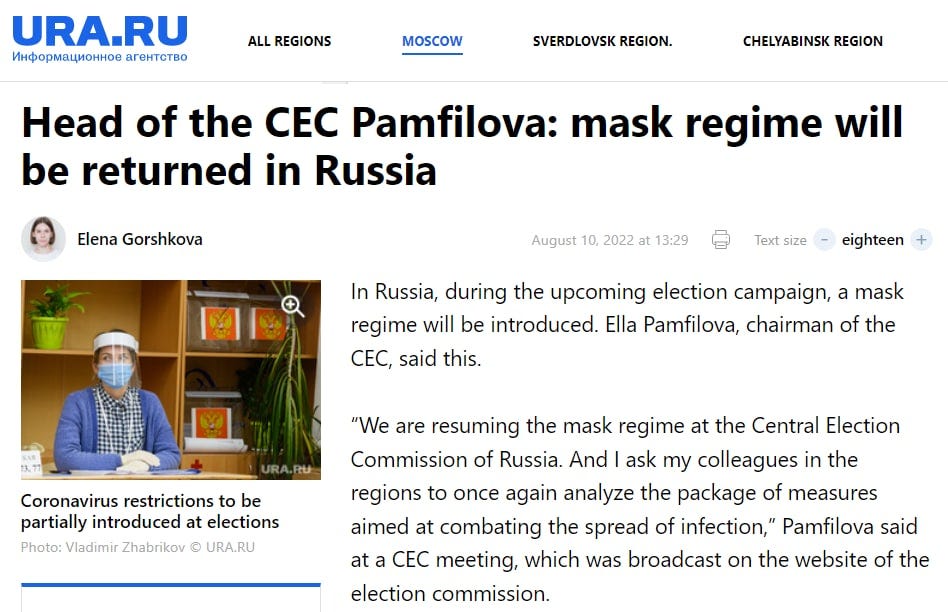
On August 17, the prime minister’s office announced mask rules and other restrictions would be returning to the White House—Russia’s iconic government building.
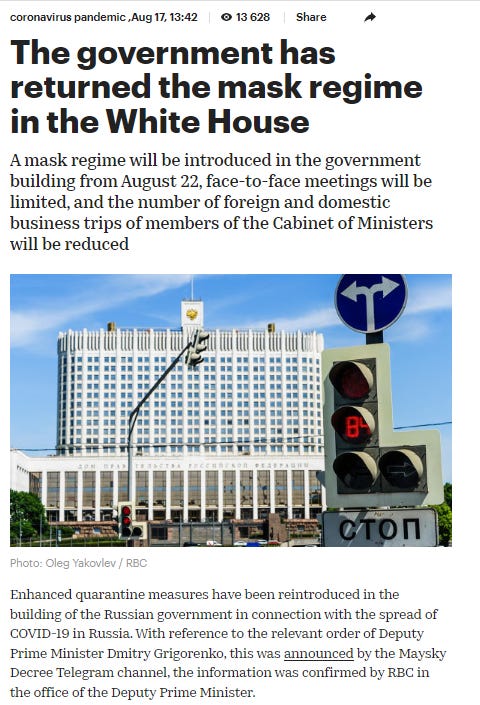
As Russians are being bombarded with new COVID rules and recommendations, there isn’t a single voice in the federal government calling for a review or reassessment of the country’s murderous Virus policies.
Moscow Mayor Sergey Sobyanin’s “COVID amnesty” policy is the closest the Russian government has come to any kind of atonement. Announced at the end of May, the program allows citizens and businesses who were fined for violating “public health” measures to apply to have their money returned to them.
But far from expressing regret for his two-year extortion scheme, Sobyanin insisted Virus fines “had made a significant contribution to solving the problem of protecting the health and life of Muscovites.”
“But today that danger has passed. Today there are other challenges and problems. We see a drop in real incomes of citizens,” Sobyanin added, signaling this was an economic stimulus, not an act of contrition.
The Russian government has made no meaningful effort to scrutinize its own “public health” policies, even after Russia recorded a natural population decline of 1.04 million people in 2021—an unprecedented, record-shattering loss of life, worse than the 90s, when Russia suffered complete socioeconomic collapse.
Surely these less-than-stellar “public health” results are worthy of at least a Sate Duma report investigating the country’s COVID response? Something clearly went wrong—but what?
Why is the Russian government not asking these questions?
And if the conflict in Ukraine was designed to shake things up, why are the Donbass republics still clinging to vaccination?
The DPR announced in early May that it would continue to require various businesses and organizations to ensure 90% of their workers were vaccinated.
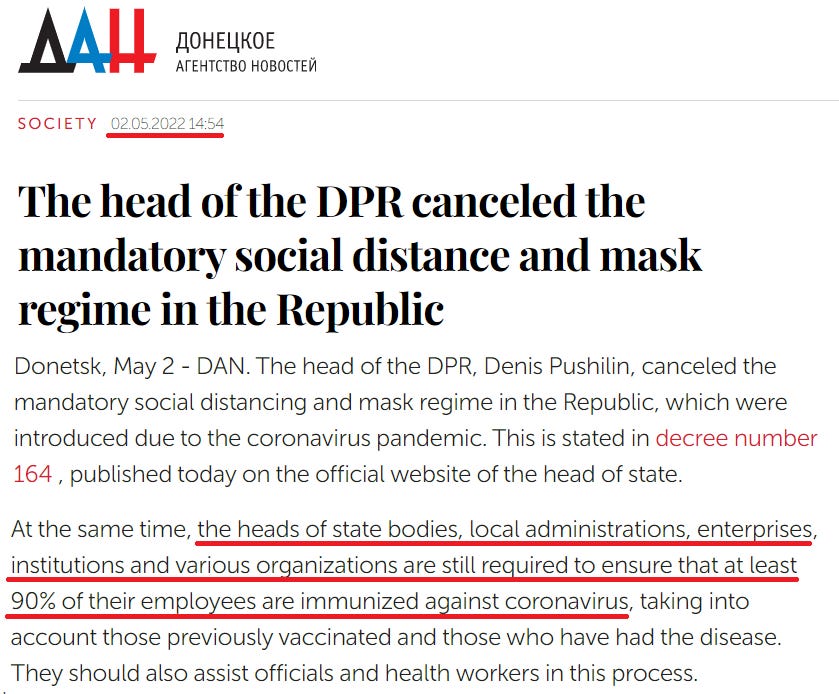
On July 20, the LPR rebooted its vaccination campaign.

Are we supposed to believe these policies were enacted against the wishes of Moscow?
Regardless of how vigorously vaccination is actually carried out in the Republics, it seems odd to keep these rules on the books, given the current circumstances.
Putin & COVID: What changed?
What about Putin’s own views or positions on COVID? Have they changed since February 24? The below chronology is an attempt at documenting all of Putin’s COVID-related statements or decisions in the wake of the special military operation.
March 2022
Russian President Vladimir Putin ordered the transformation of the State Council working group on countering the spread of coronavirus into the State Council working group on economic issues and countering the spread of coronavirus.
Vladimir Putin had a working meeting with Head of the Federal Medical and Biological Agency (FMBA) Veronika Skvortsova.
The President was informed about the main areas of the agency’s work, including the ongoing efforts of the FMBA in combating the spread of COVID-19, in particular, the development of AmpliTest test systems, Mir-19 antiviral antidote, and the Convacell prophylactic vaccine.
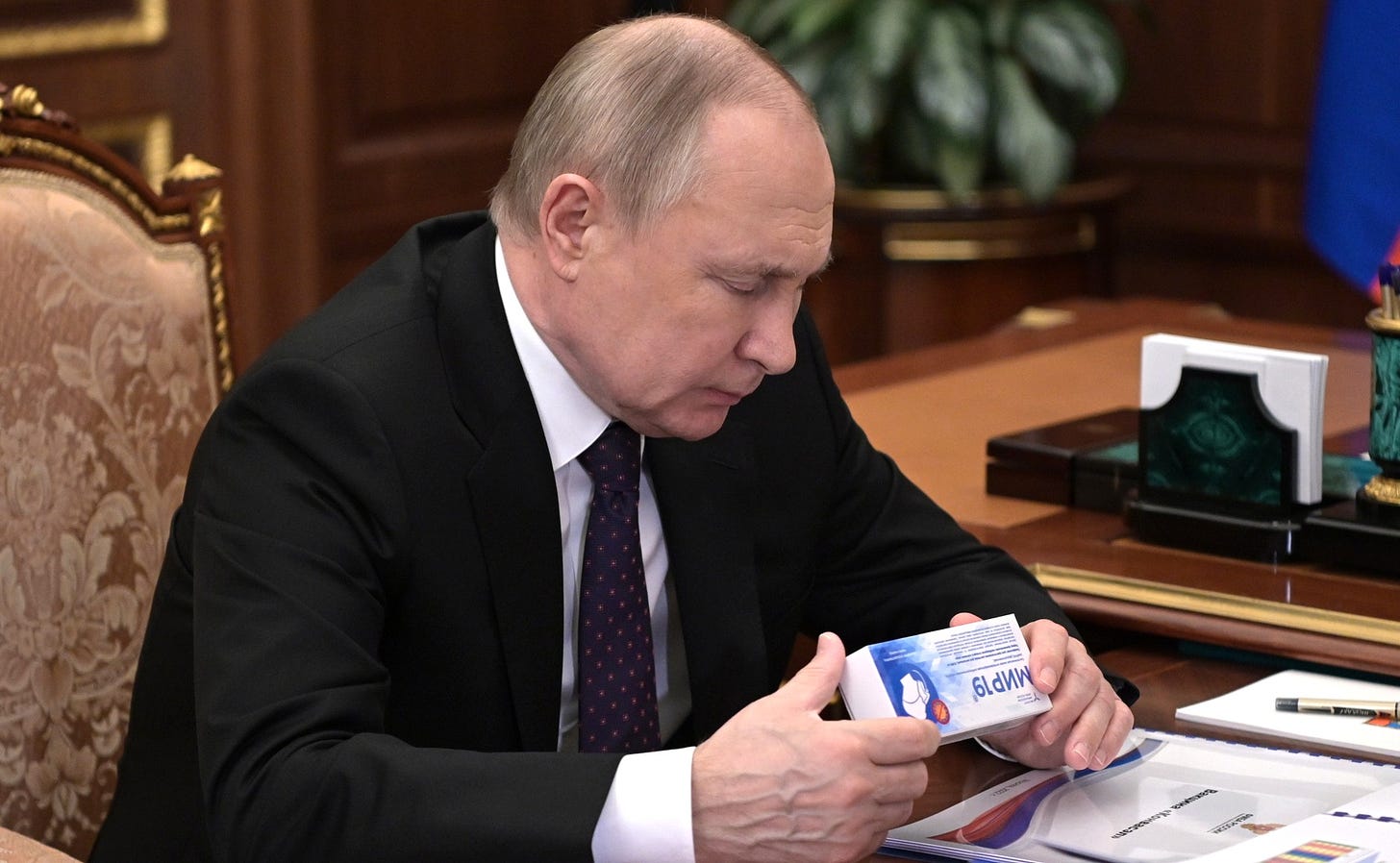
June 2022
The fight against coronavirus infection is still ongoing, Russian President Vladimir Putin said at a meeting with young entrepreneurs, developers of start-ups in the field of technology and innovation, agriculture, and the creative sector of the economy.
“What was done by our institutions during the period of the fight against coronavirus infection—the active phase of the fight, this fight is still ongoing, but nevertheless, it still shows that everything that has been done so far has not been in vain.”
According to him, medicine is one of those areas in which the efforts of the state can be recognized as successful. “There is a result,” Putin added.
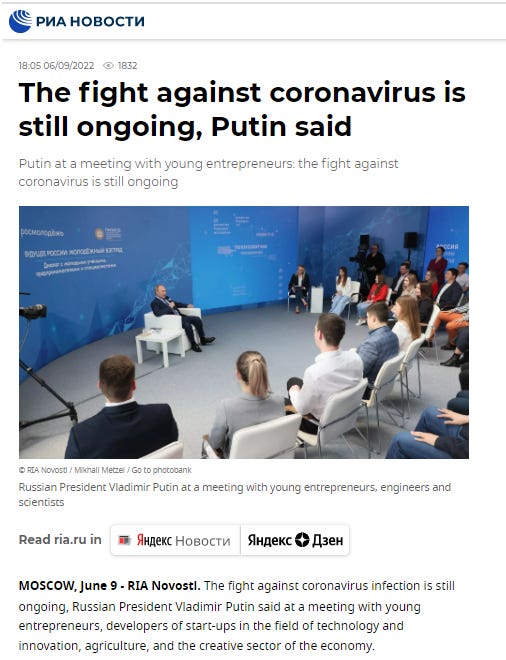
July 2022
Press Secretary of the President of Russia Dmitry Peskov said that the Kremlin maintains a “high precaution” regime, including the wearing of masks. Today, July 1, Russia lifted all restrictions on coronavirus.
“For the time being, we still have an increased precautionary regime, even the mask regime has not yet been canceled. Still, we are talking about the residence of the head of state. Additional measures here are understandable and explainable,” Mr. Peskov said during the briefing.
Russian President Vladimir Putin signed a decree on awarding the Order of Pirogov for participation in the development and production of vaccines against coronavirus. The document was published on July 15 on the official portal of legal information.

Press Secretary of the President of the Russian Federation Dmitry Peskov does not yet know whether the head of state Vladimir Putin has undergone a new revaccination against COVID.
"I don't know, I can't exactly answer your question," a Kremlin spokesman told reporters on Thursday. He promised to get information on this.
The President was revaccinated against coronavirus with Sputnik Light in November 2021. The day after the vaccination, he also tested a nasal drug for COVID.
August 2022
The Kremlin does not rule out the introduction of additional measures to combat coronavirus in the event of a significant increase in the number of cases. In particular, mandatory vaccination against COVID-19 for certain categories of citizens may be returned.
This was announced on Wednesday, August 3, by the press secretary of the President of Russia Dmitry Peskov. He noted that the situation with coronavirus is monitored daily at the government level, and the head of state also receives reports on the development of the pandemic every day.
(Note: Peskov later clarified that reintroducing restrictions at the federal level was not being discussed.)
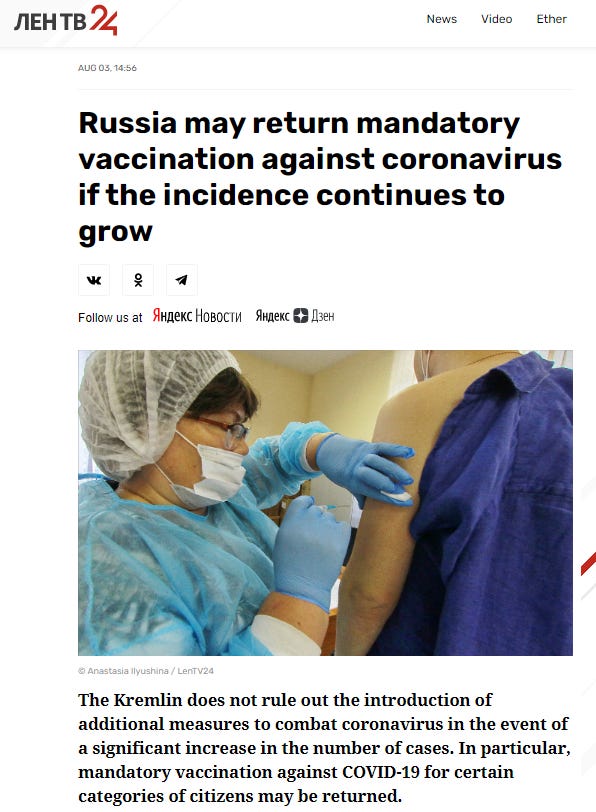
Davos’ divorce with Russia
The World Economic Forum’s decision to cut all formal ties with Moscow has often been cited as irrefutable proof that Russia is not involved in the Great Reset agenda.
But has Russia rejected the Great Reset agenda? We recently explored this question in an article published at Unlimited Hangout. From “sustainability” to genetic vaccines to CBDCs, Russia continues to aggressively pursue virtually all aspects of the New Normal that has taken root across the globe. In some cases, Russia is far ahead of the West in rolling out these anti-human policies.
Any progress towards ending Davos’ influence in Russia—even if only on paper—is of course welcome and should be applauded. But did Russia even seek a divorce with Davos? There is evidence that the Russian government was in no hurry to end its relationship with the WEF after February 24.
First, some background:
Introducing Putin to a virtual Davos gathering in January 2021, Schwab called Putin’s voice “essential” in world affairs, echoing a comment from 2009 that he could not think of a single issue of global importance that could be solved without Russia’s involvement. The pair last met in mid-2021, when Schwab told Putin of the “particular importance” he attaches to Russian representatives taking part in Davos events.
Schwab, via a spokesperson, chose not to directly comment on his relationship with Putin.
But the tides have turned. Not only is sucking up to Putin suddenly déclassé, but WEF is now forced to comply with U.S., EU and Swiss sanctions against Russia, which not only means cutting ties with Russian banks and oil companies — but juggling the sensitivities of the Belgium-based SWIFT international finance transfer system (a WEF six-figure “partner”), from which Russian entities are now banned.
Days before the WEF cut ties with Moscow in order to comply with US sanctions, an activist group in Russia sent a letter the Ministry of Economic Development demanding an end to the country’s links to Davos.
The group received a response from the ministry, dated March 3, which defended Russia’s relationship with the WEF:
The Moscow branch of WEF’s Center for the Fourth Industrial Revolution, launched in October 2021 and hosted by Russia’s ANO Digital Economy, confirmed in a statement on April 15 that it had suspended cooperation with Schwab’s organization.
ANO Digital Economy’s Supervisory Board includes top ministers and Russian business leaders.
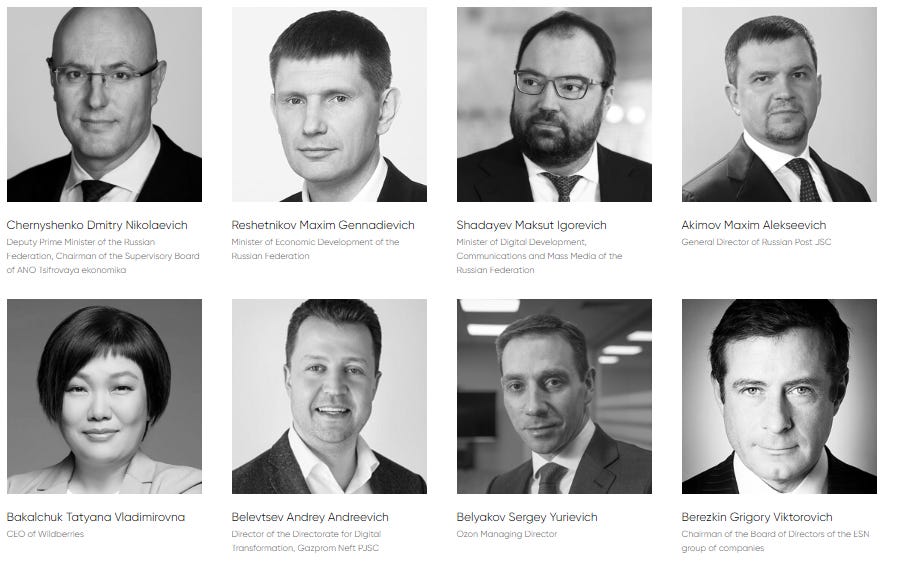
But ANO Digital Economy didn’t seem overly excited about ending its cooperation with the WEF. In fact, even at the end of April, it continued to proudly list collaboration with the World Economic Forum on the front page of its website.
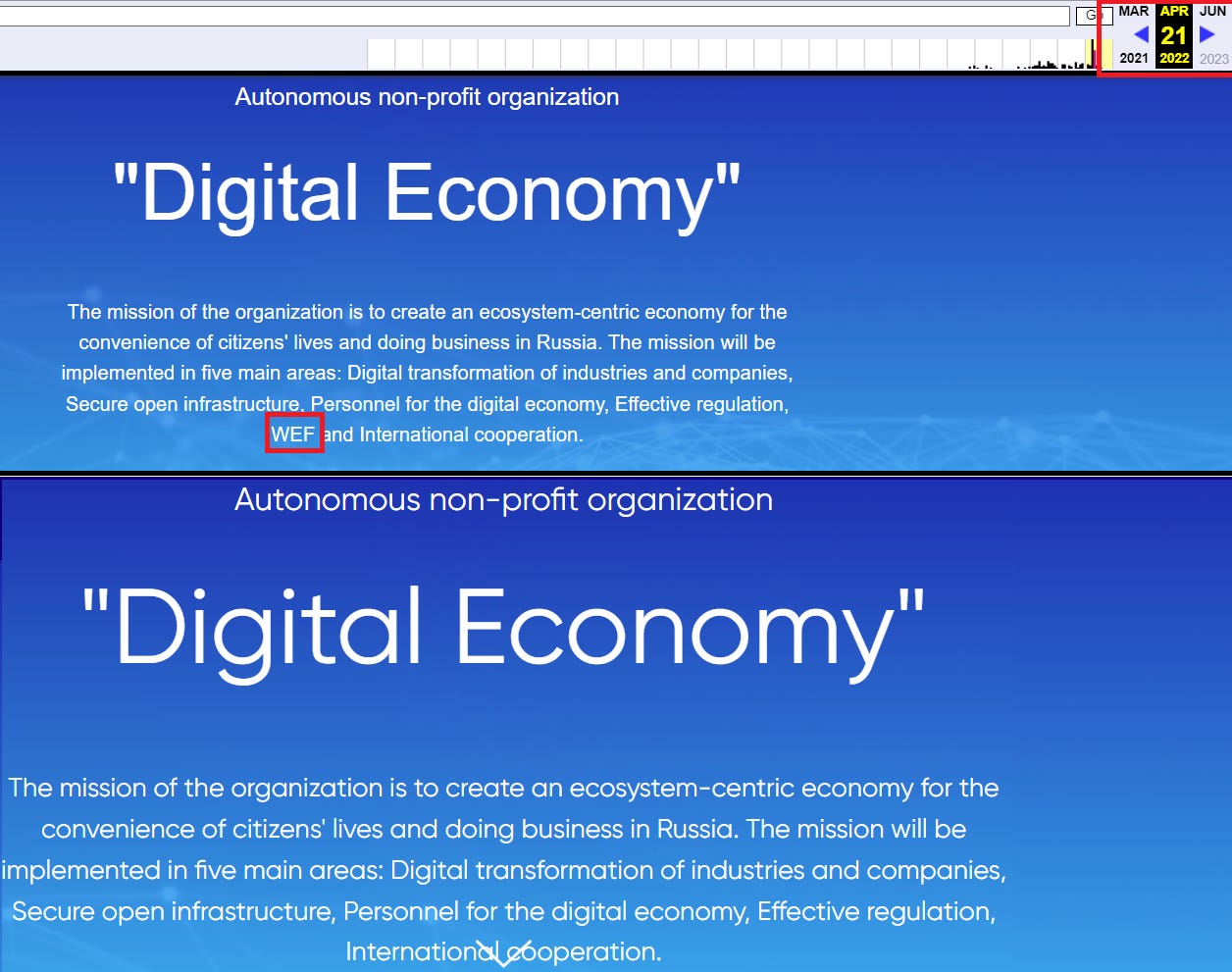
ANO Digital Economy has continued normal operations, pursuing policies that dovetail perfectly with the “digital transformation” so beloved by Davos.

If people are drawing sweeping conclusions because the WEF deleted Putin’s profile on its website, surely the fact that Russia’s own WEF-linked institutions showed no enthusiasm for distancing itself from the World Economic Forum is equally noteworthy?
Actually, we know what Russian displeasure with the WEF looks like.
In 2018, Russia came close to boycotting the Davos Forum after the WEF said it would exclude Oleg Deripaska and other oligarchs from participating due to US sanctions.
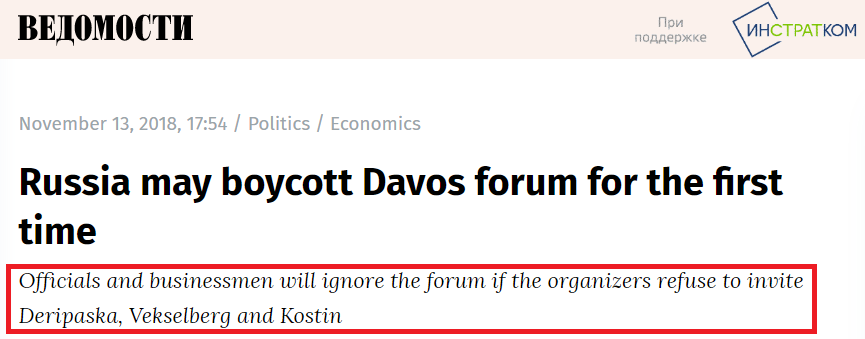
“If all these decisions that have been taken in relation to Russian business representatives are not changed, then we will have to take a decision regarding the cancellation of participation in the Davos forum of state employees and Russian companies where the state has a stake,” then-Prime Minister Dmitry Medvedev said.
The Kremlin issued its own angry statement.
“Deripaska, Kostin and Vekselberg became what they are not because of the forum. But the Davos Forum became the Davos Forum thanks to such businessmen,” Kremlin spokesman Dmitry Peskov said in response to attempts to exclude Russia’s oligarchs from Davos.
The WEF eventually relented and allowed Russia’s business tycoons to attend.
Russia “leaving” the WHO: What actually happened?
On April 18, we wrote about why medical sovereignty was an absolute must-have for Russia if it is actually seeking to break away from the space lizards who were actively trying to make life miserable for everyone.
We argued it made little sense for Russia to wage open war against the Collective West if it was simultaneously deferring to a global health organization funded almost exclusively by the West. A very reasonable assessment, no?
By the way: Russia is also a donor to the Bill Gates-funded “vaccine alliance,” GAVI. Moscow has pledged $80 million in funding to GAVI, and forked over $10 million in 2021. Obviously, this charity needs to stop immediately.
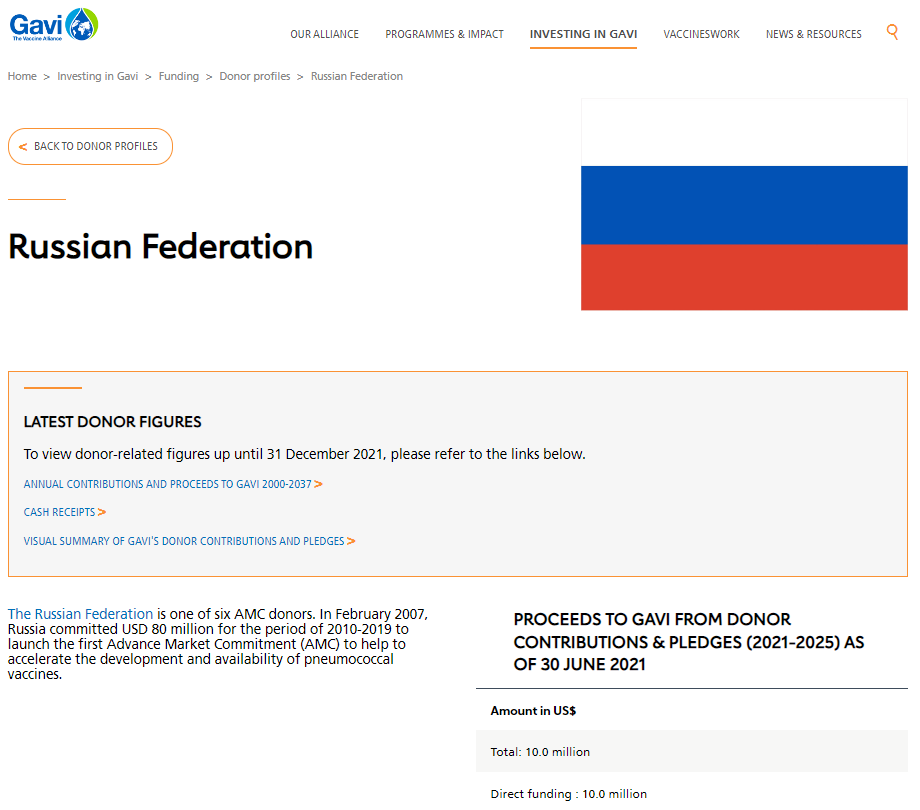
On April 20, State Duma Speaker Vyacheslav Volodin instructed lawmakers to examine the merits of Russia’s membership in the WHO. This was very exciting news. But was this an initiative supported by the federal government?
Shortly after Volodin’s announcement, journalist and broadcaster Anna Shafran (she has a show on Spas TV and is a popular radio personality at Vesti FM and Komsomolskaya Pravda) published a nauseating letter in which Russia’s health ministry declared its unshakable affinity for the World Health Organization.
Dated May 17, the document insisted “cooperation between the Russian Federation and WHO is effective and mutually beneficial. We consider it expedient to continue it in its entirety.”
Hours after Shafran published the Health Ministry’s letter, Russia’s foreign ministry revealed that Sergey Lavrov had a telephone call with WHO Director-General Tedros Adhanom:
On May 18, at the initiative of the Russian side, Sergey Lavrov had a telephone conversation with the Director General of the World Health Organization (WHO) Tedros Adhanom.
Russia’s support for the central role of the WHO was confirmed, our readiness to continue to actively participate in the activities of the Organization, to make an important contribution to solving global health problems, including in the context of the ongoing fine-tuning of the international health emergency preparedness and response system.
During the conversation, issues concerning the preparation for the 75th session of the World Health Assembly were considered. Sergey Lavrov emphasized the need to avoid politicized decisions that could pose a threat to international cooperation in the field of health care and be fraught with serious disruptions in the effective interaction of member countries with WHO.
On May 23, Russia’s deputy minister of health, Alexandra Dronova, spoke at the 75th World Health Assembly in Geneva.
Some highlights from her address:
“The countries of the world were able to overcome the acute phase of the pandemic with a collective effort under the coordinating role of the World Health Organization.”
“We see WHO as a reliable partner in ensuring equal and full-format access to health services for the population affected by conflicts... However, lately, with deep concern, we record the facts of politicizing the work of the organization and the deviation from the principle of 'unbiased' in work.”
“Sustainable WHO funding is required to accomplish the tasks set. We welcome the agreements reached on phased increase of mandatory fees. This process must be accompanied by appropriate reforms in the field of management and budget formation.”
“We support joint work to strengthen the global health architecture. It must be based on the principles of consensus, transparency, impartiality. The development of a new WHO international pandemic response tool and making specific changes to the International Health and Sanitation Rules should not violate the sovereign right of countries to determine a set of emergency response measures and on their territory.”
The next day, on May 24, Russia’s Permanent Representative to the UN Office in Geneva congratulated Tedros on his re-election as Director-General.

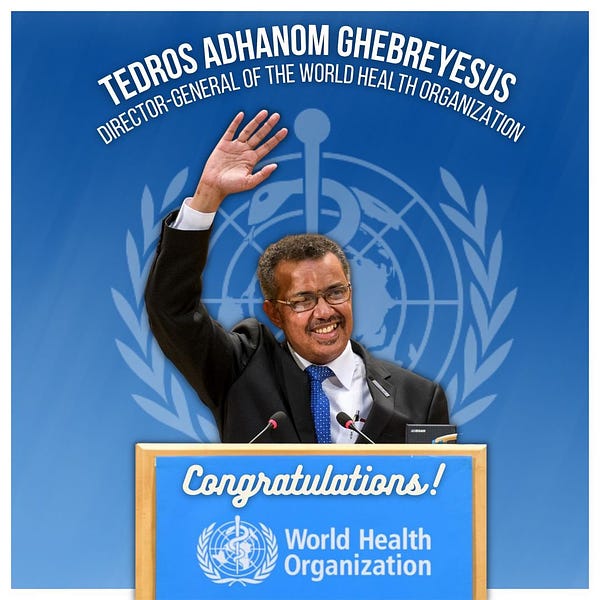
On May 25, Russia’s Foreign Minister reaffirmed there were no plans to withdraw from the WHO.
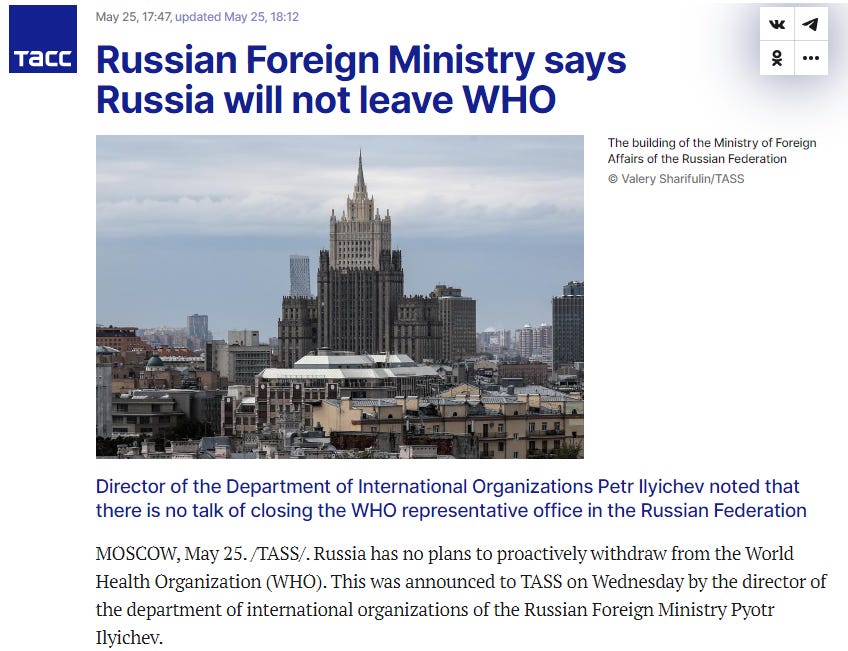
The next day, on May 26, the WHO passed a resolution (88 votes in favor, 12 votes against, and 53 abstentions) condemning “Russian aggression” in Ukraine, and claiming Moscow’s special operation was “causing a serious impediment to the health of the population of Ukraine, as well as having regional and wider than regional health impacts.”
Did this incendiary political posturing strain relations between Moscow and the WHO? Apparently not.
While Russia expressed reservations about proposed amendments to the International Health Regulations (IHR), Moscow did not stonewall the dangerous global health proposals.
As Politico reported on May 28, a compromise was reached:
The World Health Assembly — the annual meeting of WHO member countries — adopted a U.S.-led resolution that sets the timeline for amendments to the International Health Regulations (IHR) to come into force. The resolution was nearly scuppered after several countries including the Africa group, indicated that they had reservations about it.
On June 4, Tedros participated in a panel discussion (via video) at the St. Petersburg International Economic Forum (SPIEF) titled: “Fighting Infections: Future Risks.”
Tedros and his fellow panelists discussed the following topics:
The COVID-19 pandemic has not only necessitated the rapid development of effective and safe vaccines against the coronavirus, it has also launched a trend of creating next-generation vaccines, with the prospect of using vaccine platforms in other areas of medicine. […]
The unprecedented challenge to the global community caused by the pandemic clearly demonstrates the importance of vaccination as the most effective method of preventing future catastrophes. […]
How soon will the global population be vaccinated, and what international cooperation solutions can be used to accelerate this process?
On June 8, Russian Health Minister Mikhail Murashko, who also serves on the WHO’s Executive Board, said Moscow “will continue to support the WHO in the leading role it plays in global health governance.”
Speaking at SPIEF on June 18, Melita Vujnovic, WHO representative to Russia, announced negotiations between the World Health Organization and the Russian Direct Investment Fund (RDIF) concerning recognition of Sputnik V were back on track.
“Cooperation goes on despite difficult moments. The World Health Organization is a platform for multilateral cooperation on the topic of health, and our main task is to remove all barriers, all obstacles to scientific and practical cooperation,” the WHO representative said.
A grassroots campaign to pressure the Russian government to leave the WHO continues, but it seems little progress has been made. On July 17, Tsargrad warned the WHO was “keen to bring back [the pandemic of] 2020 … It is possible that it will succeed.”
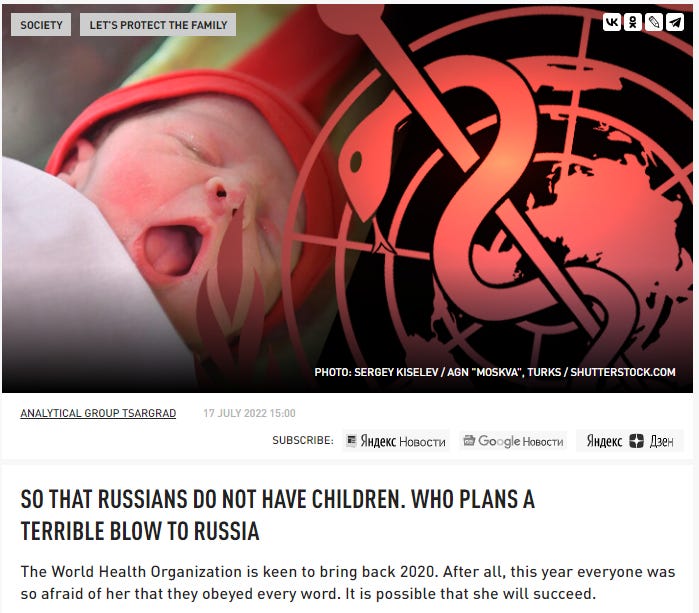
What about BRICS?
BRICS (Brazil, Russia, India, China and South Africa) has been a vocal and active supporter of the WHO “global health agenda.”

At the XII BRICS Summit on November 17, 2020, the group released a declaration vowing continued support for the World Health Organization, as well as the global COVID vaccination campaign:
We recognize the role of large-scale COVID-19 immunization to prevent, contain, and interrupt transmission to end the pandemic once safe, high-quality, effective, efficacious, affordable, and affordable vaccines become available.
We recognize the initiatives of WHO, governments, non-profit organizations, research institutions and pharmaceutical companies to accelerate the research, development and production of vaccines and medicines against COVID-19 and support collaborative approaches in this regard.
We will take steps to ensure that the vaccine, when available, is distributed to the entire population of the world in a fair and equitable manner and at an affordable cost. In this regard, we support the Accelerated Access to COVID-19 Funds (ACT) Initiative.
But this declaration was issued nearly two years ago. Maybe they’ve changed their position?
The XIV BRICS Summit Beijing Declaration, published on June 23, 2022, states:
We support the leading role of the WHO in combating the pandemic, as well as acknowledge initiatives such as the COVAX and the ACT-A.
We recognize the importance of the discussions in the WTO on relevant IP waiver proposals, as well as capacity building and strengthening local production of vaccines and other health tools, especially in developing countries.
We stress the need to continue to strengthen the cooperation on testing methods, therapeutic, research, production and recognition of vaccines, the research on their efficacy and safety in light of new variants of COVID-19 virus and recognition of national document of vaccination against COVID-19 and respective testing, especially for purpose of international travel.
While BRICS does have its own “public health” initiatives, they compliment—rather than undermine—the WHO’s peculiar brand of health-promotion.
At the opening of the BRICS virtual Center for research and development of vaccines on March 22, 2022, Health Minister Murashko underscored the importance of creating a “universal [vaccine] platform” for combatting future epidemiological threats:
“The COVID-19 pandemic has shown the critical importance of continuous improvement and development of diagnostic tools for new and re-emerging infections … Before us there is an ambitious task to create an effective and universal platform for the creation of vaccines,” Murashko said.


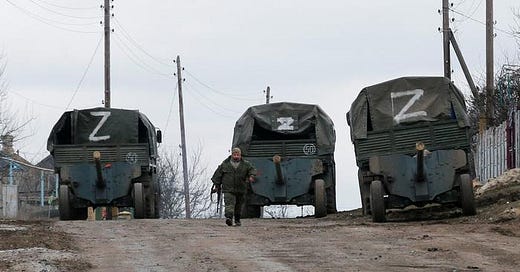




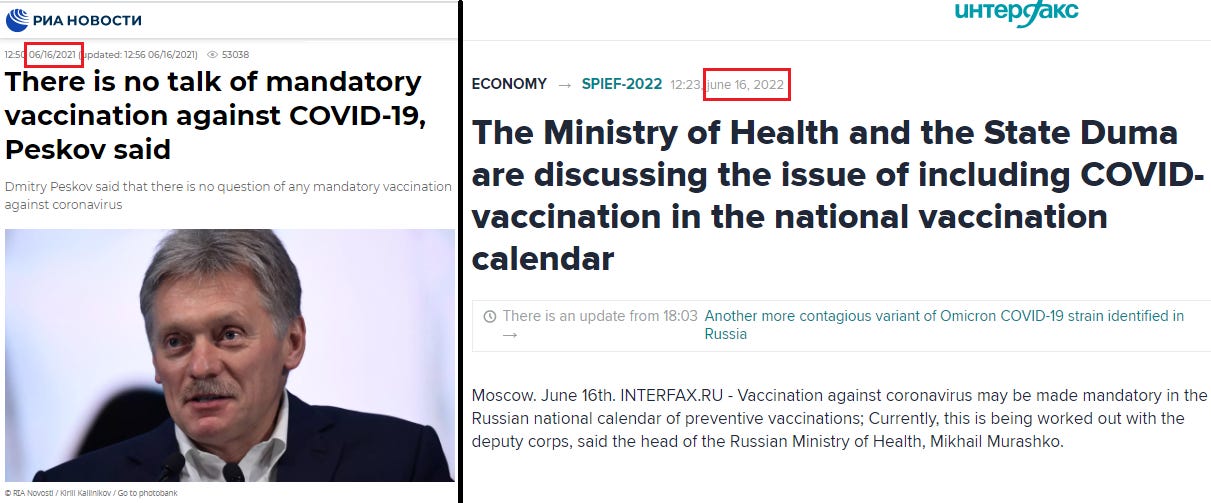

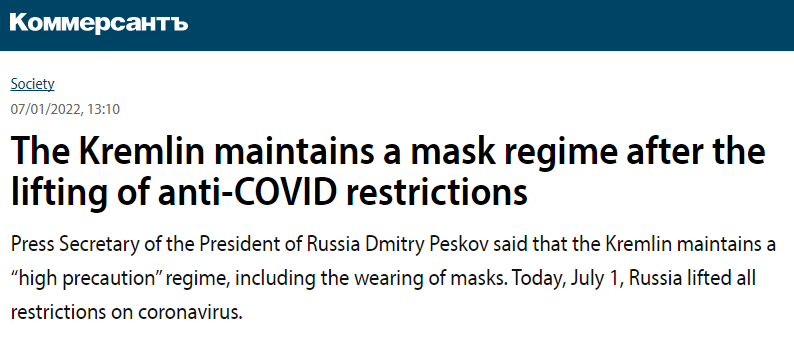

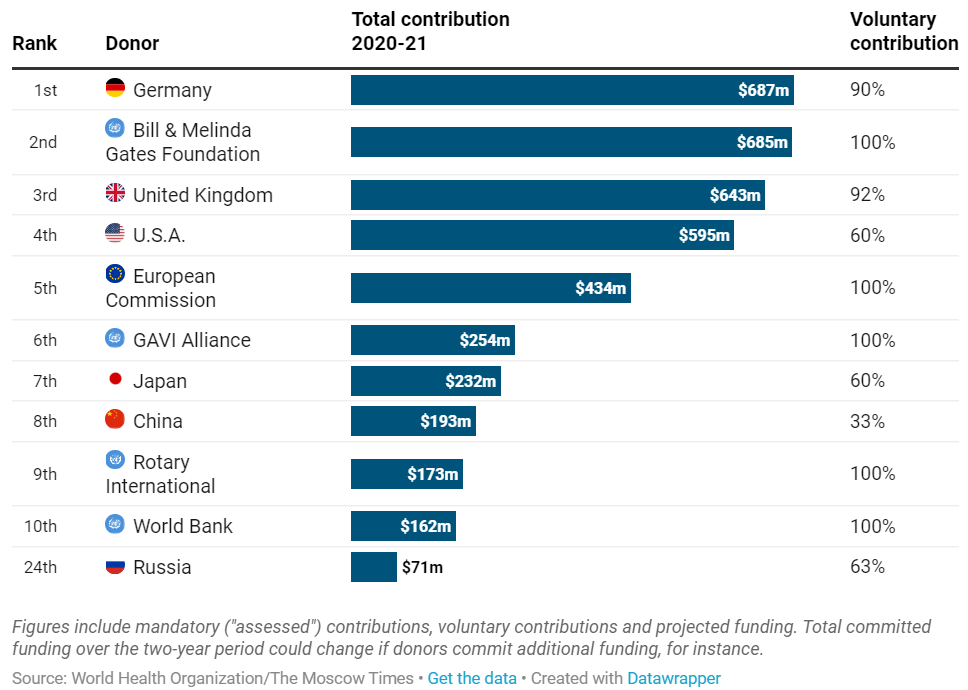
Riley continues his relentless drive to document Russian authorities' pro-globalist position. This is probably a difficult read for most, as there are a lot of facts presented in his article and it sounds almost like an indictment. Perhaps he should consider collaborating with Reiner Fuellmich, German/American lawyer that prepared an indictment for the creators of the murderous fooldemic, at least in a public court of opinion. I think this work by Riley, especially rare to find in English, will not go in vain.
If the purpose of the Special Military Operation in Ukraine was to shake things up internally in Russia, then it wasn't achieved. The globalists in Russia that permeated all of the country's governance structures look as strong and resilient as ever after a short period of confusion and uncertainty. They didn't loose, they actually gained new powers as now it became clear that they are the majority and hold all of the key roles.
While the globalists are getting stronger in Russia the strange war continues on its strange course:
- Russian gas continues to flow to Europe through Ukraine
- Russian military defiantly refuses to bomb logistic routes and transport infrastructure in Ukraine thus allowing West supplied weapons to reach the front line and to kill more Russian soldiers
- All the "red lines" after crossing which former president Medvedev along with the Russian Ministry of Defense promised strikes on the "decision making centers" continue to be crossed by Ukraine over and over again with no consequences. Two attacks on Crimea in the last week - one on the military airport Saki where several military jets and loads of high potency ammunition were destroyed and an attack on ammunitions depot in Dzhankoy haphazardly organized right along the rail line by which visitors to Crimea from the continent travel and all could perfectly see it stored uncovered less that 10 meters away from the railroad.
- Also recent attack on the high voltage power lines in the Kursk region of Russia that disrupted the work of the nuclear power station there and ongoing shelling by Ukrainian military of the Zaporozhye nuclear power plant now under Russian control threatening a major disaster Chernobyl style. Russia and the West allow this to continue
- Terrorist actions by Ukrainian troops where they shower the center of Donetsk with the special rockets that instead of exploding on reaching ground are spreading thousands of tiny anti-infantry mines called petals. These mines can hardly kill a grown-up individual, but will rip off a foot if stepped on them. These actions go completely unnoticed by the "international community" or by UN Secretary General Guterres that instead travels to Western Ukraine to meet there with Zelensky and Erdogan to congratulate themselves on how well they did taking some corn out of Ukraine to EU pretending this was wheat for "hungry" Africa.
Strange times, strange wars... Not many things make sense anymore.
Riley, thank you for another superb report.
The other day a friend asked me what I'd choose if I could, living in a country at war or living under covid lockdown. I hate to admit it but I chose war... maybe because I'm not in an actual war zone now, but still.